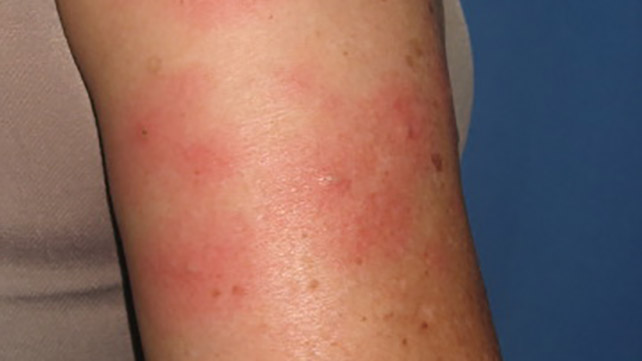Anyone who suffers from inflammatory bowel disease (IBD) is familiar with problem of ulcerative colitis rash

Healthline
IBD is a disorder that affects the digestive tract, and the reason of this illness is uncertain. Ulcerative colitis is a kind of IBD that affects not only your digestive tract (large intestine), but also your skin. Such skin issues might make you feel even more uneasy and possibly cause pain. Let’s take a look at the signs and symptoms of ulcerative colitis rash, as well as how to treat it.
Cause
Ulcerative colitis, an inflammatory illness affecting the large intestine, is linked to a variety of rashes. It’s possible that you’ll develop unpleasant red rashes on your skin. These are caused by inflammation in your body and can occur as a side effect of medicine.
Psoriasis, vitiligo, pyoderma gangrenosum, dermatosis, erythema nodosum (bruise-like painful rashes), and acquired epidermolysis bullosa are all skin conditions associated with ulcerative colitis (skin blisters). These disorders are frequently caused by inflammation and problems with the immune system as a result of IBD. For those with inflammatory bowel illnesses like ulcerative colitis, immunodeficiency is a major problem.
Sweets syndrome is also linked to ulcerative colitis. Rashes appear on the arms, legs, trunk, face, and neck in this unusual inflammatory illness. When immunosuppressive therapy is intensified, it is possible for patients to develop it.
Knowing the reasons isn’t enough to adequately treat the illness. You must also be aware of the symptoms, which are detailed below.
Symptoms
Symptoms of ulcerative colitis vary in degree and severity depending on the person who has it. Some people may have periods of moderate symptoms, while others may have no symptoms at all.
Returning symptoms, on the other hand, is extremely normal, and you may encounter them during a flare-up. Among the most common symptoms are:
- Mild to severe Abdominal pain.
- Diarrhea
- Abdominal noises have increased.
- Fever and rectal discomfort
- Stools with blood
- Weight reduction that occurs suddenly.
Aside from these symptoms, ulcerative colitis can also lead to:
- Swelling and discomfort in the joints
- Nausea
- Appetite suppression
- Mouth ulcers and sores
- Inflammation of the eyes
Who is affected with Ulcerative Colitis?
Ulcerative colitis can affect anyone. You are, nevertheless, at a higher risk of having the disease if:
- You have a history of IBD in your family.
- You eat a high-fat, high-carbohydrate diet.
- You use non-steroidal anti-inflammatory medications (NSAIDS).





